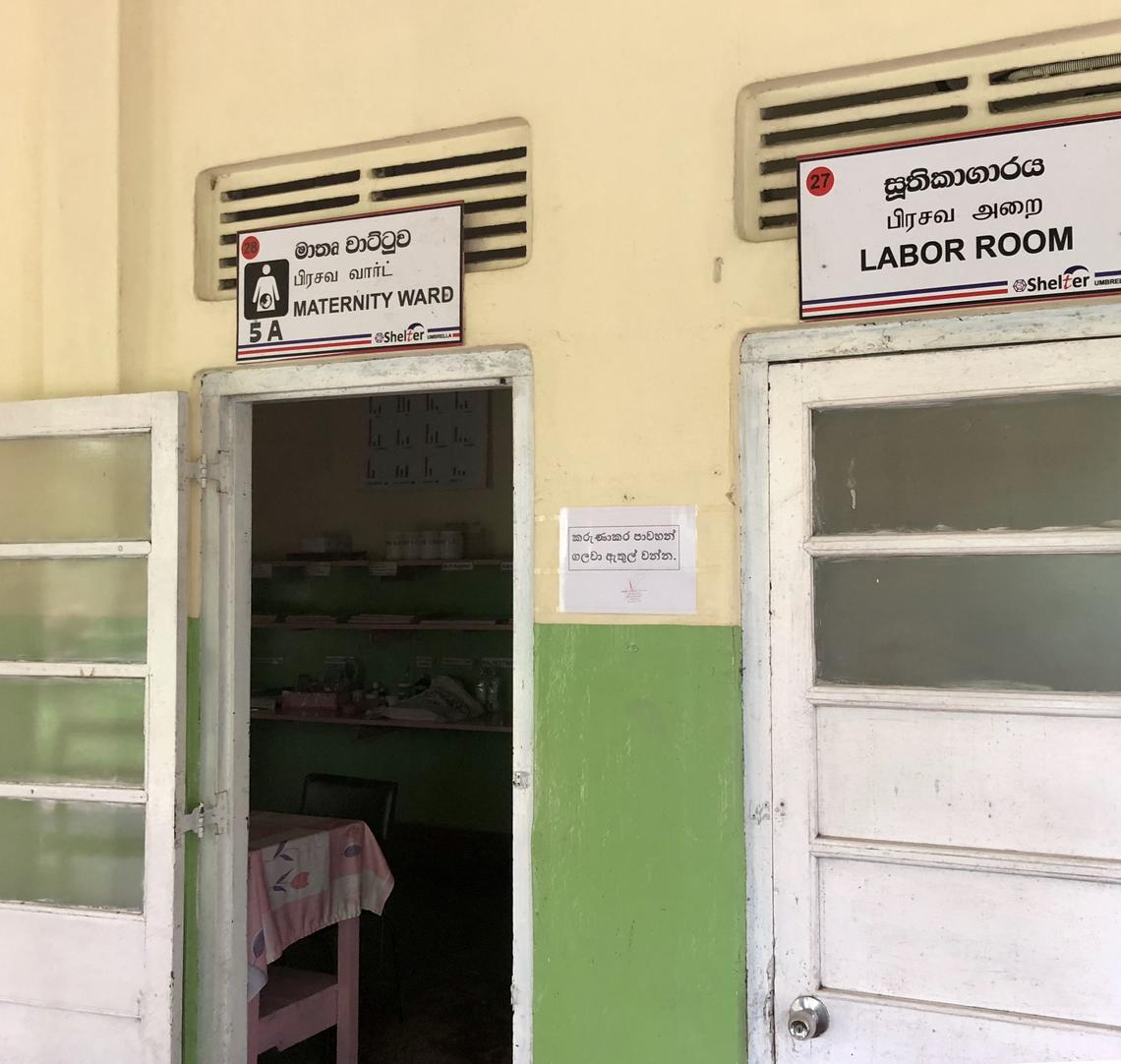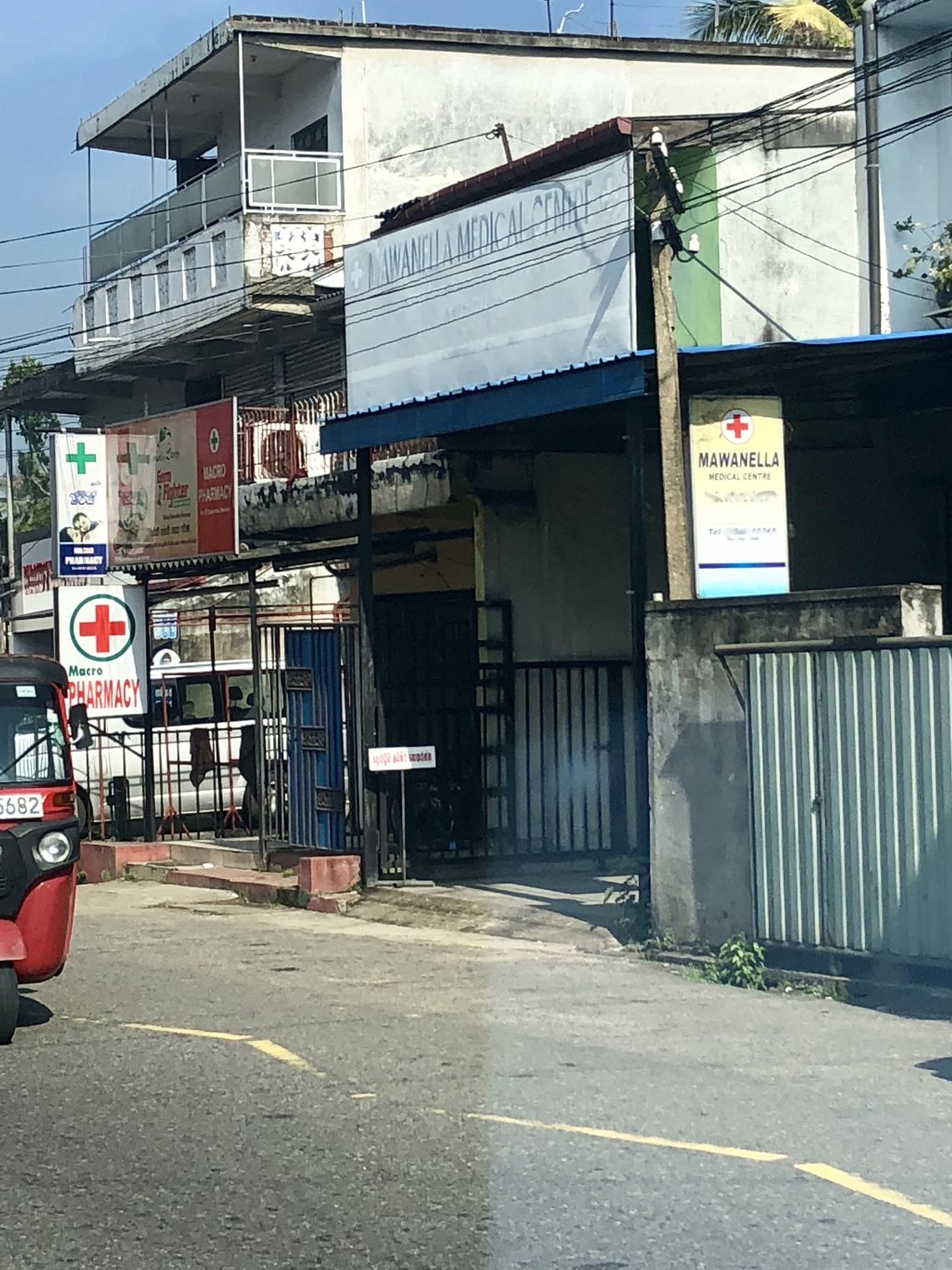
Hollis toured a number of rural health facilities including street clinics and maternity wards.
Asha Hollis
Jan. 8, 2019

At 23, Asha Hollis travelled to Sri Lanka and India, where she spoke at an international medical congress and won an award for her presentation. She visited family who inspired her passion for helping others, toured health facilities including street clinics, maternity wards, and waiting rooms. And she advocated for children’s health, helping to make the University of Calgary a national leader in the push for global access to medicines.
Recognized this year by the Alberta Council for Global Co-operation (ACGC), which highlights youth partnering to achieve sustainable human development goals, as a Top 30 Under 30, the seemingly tireless Hollis is just getting started.
“I’ve worked with children in hospitals who face many challenges but are not daunted by them, who are always fun to be around, who bring their incredible spirit and energy to others,” says Hollis, a Cumming School of Medicine (CSM) Bachelor of Health Sciences graduate (2017). Currently in the Leaders in Medicine joint degree program, she is working on her master's in neuroscience and starts medical school at the CSM in July.
“It’s important for me to advocate for their health and well-being and to make a difference.”

Hollis toured a number of rural health facilities including street clinics and maternity wards.
Asha Hollis
UCalgary adopts Global Access to Medicines principles
Thanks to Hollis’s efforts, UCalgary recently became the second post-secondary institution in Canada to adopt Global Access to Medicines Principles. Now, low- and middle-income countries will have fair access to medicines and technologies developed through publicly funded research and commercialized through Innovate Calgary that have the potential to advance health, protect the environment and promote sustainability.
“With these guidelines, medicines will be affordable to people in low-income countries, including families with children who should not face health problems just because they don’t have enough money,” says Hollis, who is affiliated with Universities Allied for Essential Medicines.
Hollis worked on the project for two and a half years and collaborated with a number of UCalgary faculty to realize the project, including Dr. Juliet Guichon, PhD, assistant professor the Department of Community Health Sciences and member of the O’Brien Institute for Public Health.
“Asha decided that the University of Calgary should participate in humanitarian licensing of technology and she was unwavering in her commitment,” says Guichon. “Universities can move slowly but, on this issue, her determination ensured that ours moved in the direction of humanitarianism.”
Having the guidelines adopted as university policy took Hollis two and a half years, but she has been passionate for years about ensuring people who face disadvantages catch a break while she seeks ways to protect and enhance their health.
While in high school in Calgary, she held a fundraiser for Médecins Sans Frontières so babies could receive medicine. During her undergrad years at UCalgary, she worked on a health advocacy project that aimed to protect children’s health through a ban on menthol cigarette products that helped achieve a policy change in Alberta in 2015.

Street clinics.
Asha Hollis
Collaboration and innovation buoy ambitions
Hollis has identified collaboration and innovation as key aspects of achieving her goals to help others, particularly in her work at UCalgary.
She recently won an award for her presentation about stroke in babies at the 15th Annual International Child Neurology Congress in Mumbai, India in November, (supported by CIHR and CSM funding, which encourages innovation).
“I have been fortunate to build relationships with faculty and staff and other students at UCalgary, which is so important for health-related advocacy,” she says. “For me, it’s always about collaboration and connecting and working as part of a team. The university makes all of this possible.”
Family and roots in Sri Lanka provide global perspective
Her mother, Kumudini Hollis, who came to Canada as a 17-year-old refugee from Sri Lanka, has inspired Asha with her hard work.
“She was undaunted by her circumstances,” says Hollis. “My mother built a life with the support of other people but she also donates her time to others and works closely with new refugee families.”
When Hollis visited her grandmother in Sri Lanka in 2010, it was a wake-up call of sorts to the health-care limitations in other nations and highlighted for her the urgent need to ensure there is a global access to medicines. During her visit, she toured medical facilities to have a better understanding of conditions and what’s needed.
The one thing that Hollis wants you to know is that the energetic work that she does is not about her; it’s about helping people who can’t afford medicines obtain access to them, and it’s about kids with health problems who need assistance, and it’s about all the people who have helped her along the way.